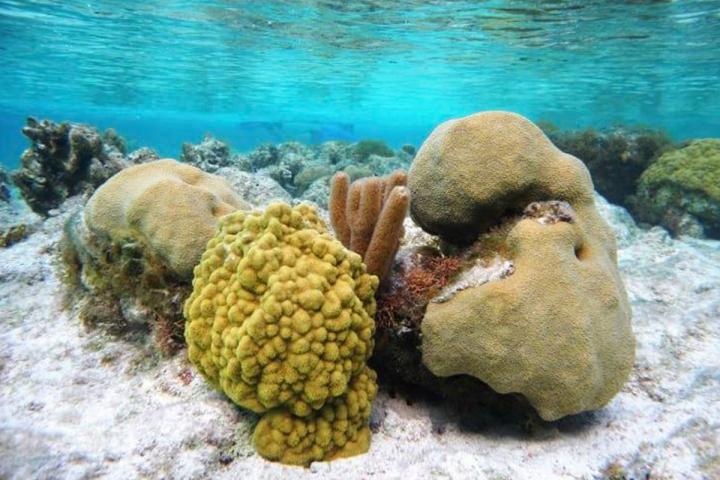
Credit: Photo by Abby Knipp
CHAMPAIGN, Ill. — A study that relied on citizen scientists to monitor the health of corals on Turks and Caicos Islands in the Caribbean from 2012 to 2018 found that 35 key coral species remained resilient during a 2014-17 global coral-bleaching event that harmed coral reefs around the world. Even corals that experienced bleaching quickly recovered, the researchers found. Some corals appeared healthier in 2017 than they were in 2014.
The researchers report their findings in the Springer Nature journal Applied Sciences.
“Boulder-type corals on the Turks and Caicos Islands demonstrated no significant bleaching as a result of the peak thermal stress in late 2015,” said Abby Knipp, who conducted the research while an undergraduate student at the University of Illinois at Urbana-Champaign. Knipp is the first author of a paper detailing the findings. “Plate-type corals did suffer bleaching, but they quickly rebounded. Their pigmentation levels were back to normal within months of the anomalously high thermal stress.”
Coral bleaching is a common response to extreme heat stress, and global coral-bleaching events are becoming more frequent as the oceans warm. The 2014-17 bleaching event occurred as record-breaking sea-surface temperatures pushed some corals past their physiological limits. Scientists call it “the most severe, widespread and longest-lasting” global coral-bleaching event on record.
Pigmentation in corals comes from photosynthetic algae, on which the corals depend for nutrients, said U. of I. geology professor and study co-author J. Cory Pettijohn.
“The algae colonize the corals and feed on the byproducts of their metabolism,” he said. “When sea-surface temperatures are too high, corals will expel the algae. Corals that experience prolonged bleaching usually die, leaving only a white calcium-carbonate skeleton behind.”
In Turks and Caicos Islands, pigmentation of the boulder corals was darker in 2017 than in 2014, suggesting these corals were even healthier after rebounding from the heat stress, Knipp said.
“We were surprised that apparent healing and darkening could happen so fast,” she said.
The scientists say more studies are needed to explain the unusual hardiness of the corals at Turks and Caicos Islands, but previous research offers clues to factors that promote coral health. For example, some algal types appear to confer added resilience to corals experiencing heat stress. Ocean salinity and acidity likely play a role. Turks and Caicos Islands tend to have lower water temperatures than other, more thermally stressed regions of the Caribbean. And the massive 2017 hurricanes Irma and Maria cooled surface waters and likely contributed to the corals’ recovery, the researchers said.
###
Knipp conducted this research while studying abroad at the School for Field Studies’ Center for Marine Resource Studies in Turks and Caicos Islands. She graduated from the U. of I. in May 2019.
Editor’s notes:
To reach Abby Knipp, email [email protected].
To reach Justin Cory Pettijohn, call 217-244-9867; email [email protected].
The paper “Contrasting color loss and restoration in survivors of the 2014-2017 coral bleaching event in the Turks and Caicos Islands” is available online.
Media Contact
Diana Yates
[email protected]
217-333-5802
Original Source
https:/
Related Journal Article
http://dx.




